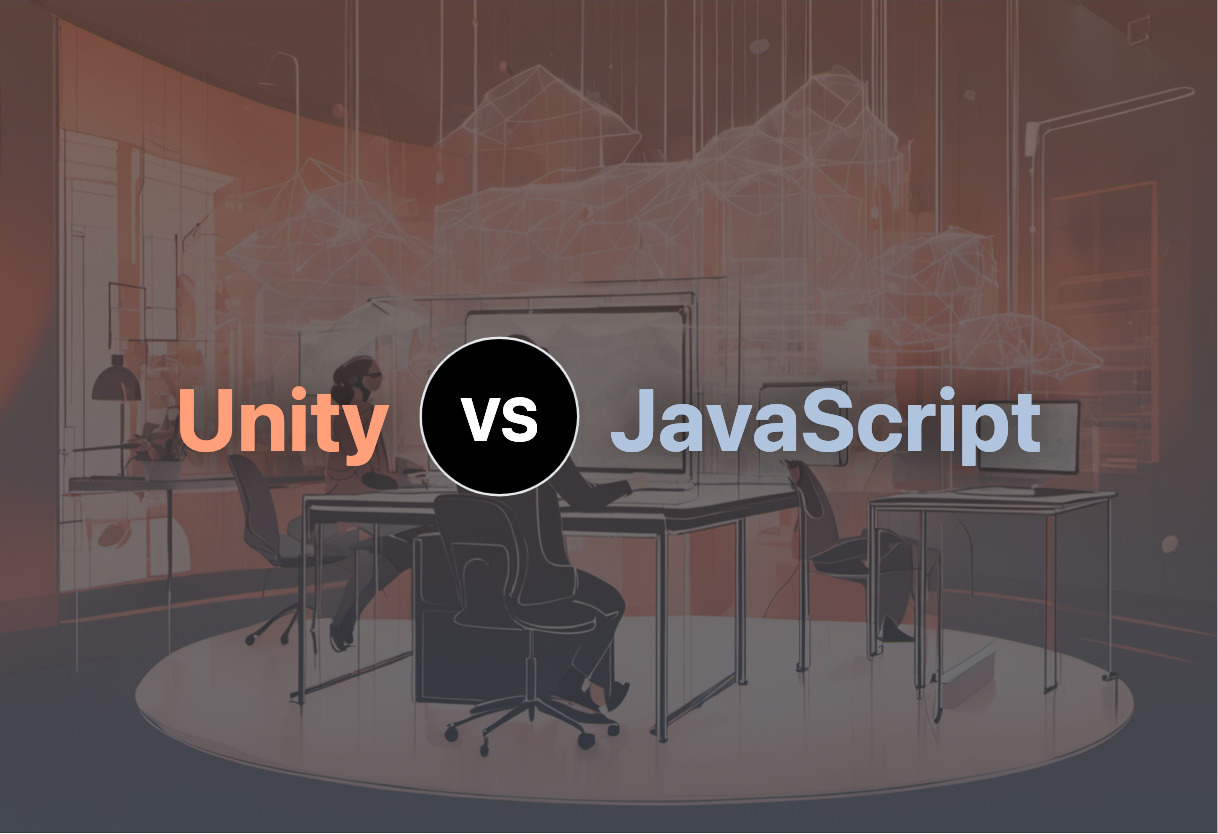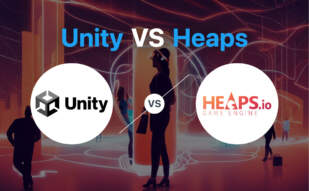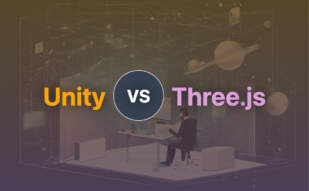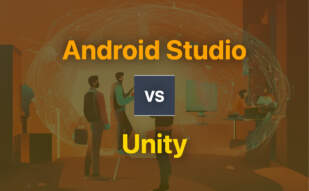For game development, particularly immersive experiences like AR and VR, Unity makes favorable ground with its robust features and strong rendering capabilities. However, JavaScript, with its versatility, simplicity, efficient client-side scripting, and broad usage, better serves dynamic web app developers.

Key Differences Between Unity and JavaScript
- Unity is designed for gaming: Provides tools for 3D simulations, AR and VR experiences, while JavaScript is geared towards dynamic webpage creation and interaction.
- Unity’s newer pricing model charges a fee per game install, impacting independent developers. JavaScript, being open-source, is free.
- JavaScript is commonly used in popular websites like Facebook and YouTube, Unity is mainly used in game creation, but the products differ vastly in terms of deployment.
- Unity supports multiple coding languages including BOO script, JavaScript, and C#, whereas JavaScript itself is the language used in web and mobile app development.
| Comparison | Unity | JavaScript |
|---|---|---|
| Initial Release | 2005 | 1995 |
| Purpose | Game development engine for creating 3D and 2D games | Dynamic web-page computer programming language |
| Cross-platform Compatibility | High | High |
| Pricing Model | Per-install fee after a certain threshold | Free |
| Active Developer Community | Yes | Yes |
| Coding Languages | BOO Script, Javascript, and C# | JavaScript and its various libraries/frameworks |
| Applications | Game development with a focus on AR/VR | Web-page interactivity, controlling browser, creating HTML content |
| Included Development Tools | Comprehensive suite of game development tools | Web-page development tools, e.g., Node.js |
| Security | Inherent in the application itself | Limited by the need for web-security |
What Is Unity and Who’s It For?
Unity is a robust game development engine introduced in 2005. Renowned for creating 3D and 2D games, it’s capable of launching cross-platform games, including those for Android and iOS. From AR applications to 3D simulations, Unity’s adaptability spans diverse operating systems. The platform appeals to professional game developers and hobbyists alike, with its high-end rendering technology and feature-rich tools.
The paid versions offer advanced features and a more streamlined experience, making it a top choice for seasoned developers. Unity also attracts beginners and indie developers with the free version offering a robust feature set.

Pros of Unity
- Cross-platform game deployment
- Large asset store
- Supports multiple coding languages
- Active developer community
- Consistent tech improvements for user-friendliness and immersive experiences.
Cons of Unity
- Backlash due to new per-install fee model
- Potential fear of per-install fees abuse
- Diminished trust due to unannounced changes
- Potential financial instability due to sudden pricing shifts
What Is JavaScript and Who’s It For?
JavaScript is a dynamic, lightweight, and widely-used programming language, integral to web page interactivity and browser control. From client-side scripting that engages users to fabricating dynamic HTML content, JavaScript allows for more network-centric applications. It draws professionals invested in web development, browser control, and dynamic webpage creation.
JavaScript’s strengths lie in its scripting capabilities and immediate visitor feedback. Its reach extends beyond traditional browser usage via Node.js, making it a choice language for server-side development and mobile app creation.

Pros of JavaScript
- Less server interaction required
- Immediate user feedback
- Increased interactivity
- Allows for server-side development with Node.js
- Used in large-scale development projects by tech giants.
Cons of JavaScript
- No ability to read/write files due to security concerns
- No multithreading or multiprocessor capabilities
- Named JavaScript for marketing benefits, leading to common confusion with Java.
Code Examples for Unity & JavaScript
Unity
Our Unity code, ideal for those of an intermediate level, produces a bouncing ball with adjustable height and speed. Ensure Unity 5 or a later version is installed, and add a Rigidbody Component to the GameObject for the code to work flawlessly.
public class BallBounce : MonoBehaviour
{
public float speed = 10f;
public float maxHeight = 2f;
Rigidbody rb;
float startY;
void Start()
{
rb = GetComponent<Rigidbody>();
startY = transform.position.y;
}
void FixedUpdate()
{
float newY = startY + Mathf.PingPong(Time.time * speed, maxHeight - startY);
rb.MovePosition(new Vector3(transform.position.x, newY, transform.position.z));
}
}JavaScript
Next up is the JavaScript code suitable for beginners that animates a falling object on a canvas. Please confirm your setup includes a modern browser that supports HTML5 canvas.
const canvas = document.getElementById("canvas");
const ctx = canvas.getContext("2d");
let y = 0;
let speed = 2;
function draw() {
ctx.clearRect(0, 0, canvas.width, canvas.height);
ctx.fillStyle = "red";
ctx.fillRect(50, y, 15, 15);
y += speed;
if (y > canvas.height) {
y = 0;
}
requestAnimationFrame(draw);
}
draw();Deciding Your Go-To: Unity vs Javascript – A Comprehensive Verdict
Following a thorough dissection of Unity and JavaScript, we venture into our verdict.
AR/VR Game Developers
If you’re an AR/VR game developer aiming for high-quality games with robust textures, your best bet is Unity. However, be aware of the pricing model that charges a fee each time your game is installed.

Web Developers
As a web developer, JavaScript is your optimal choice. Its dynamic functionality and interactivity pave the way for compelling web content notwithstanding its lack of multi-threading functionalities.

Indie Mobile Game Developers
Indie mobile game developers could benefit most from Unity given its support for a wide range of operating systems and the asset store. Still, keep a firm grip on your profit targets as install fees apply beyond a certain threshold.

Solo Developers
For solo developers, JavaScript stands out. It being lightweight and its part and parcel of web pages, allows creation of network-centric applications.

If immersive AR/VR game development is your mission, Unity may just be worth the price tag. However, if high-performing, interactive web and network-centric applications are your goal, JavaScript proves unbeatable.
Logan Bellbrook
Content writer @ Aircada with a knack for nature & AR/VR/XR. Blogging the intersection of tech & terrain.





